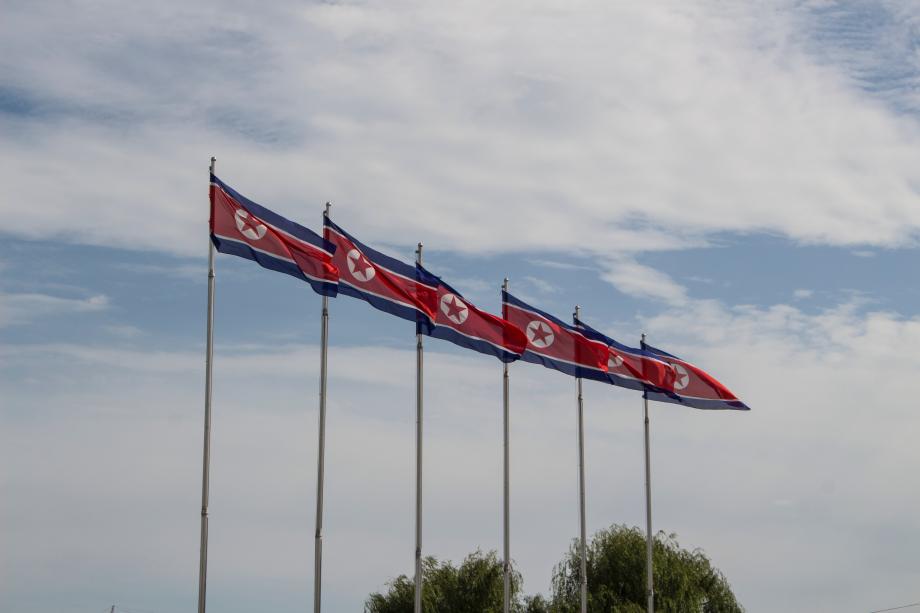Be Prepared - North Korea Will Have Nuclear Ballistic Missiles

Other global crises often overshadow the issue of North Korea's nuclear and ballistic missile programmes. Despite considerable international sanctions, Pyongyang continues to conduct many ballistic and short-range missile tests and develop nuclear weapons.
Just in the past four months, Pyongyang has already launched 23 missiles and is set to match, or even exceed, last year's record of 69 missile launches. Previous attempts to negotiate with North Korea have not yielded significant breakthroughs, and the regime's recent progress suggests that its capacities are rapidly growing.
Various attempts and approaches by American and South Korean administrations yielded little success. The North Korean regime views nuclear weapons as an essential deterrent and crucial to its survival and security and remains determined to continue its development. It seems unlikely any approach could convince the regime to abandon its nuclear ambition. At the current rate, North Korea could obtain a ballistic missile with a nuclear warhead capable of reaching the United States (U.S.) very soon.
Last month, Pyongyang declared a successful launch of its Hwasong-17, the world's largest road-mobile, liquid-fuelled intercontinental ballistic missile (ICBM). Experts estimated that the missile could reach the continental U.S. At the same time, the nuclear programme seems to be progressing. Satellite images have revealed recent activity at a nuclear test facility, and the regime published pictures of supposed small nuclear warheads that can be mounted on short-range missiles at the end of March. Earlier that month, the country tested supposedly underwater nuclear drones and cruise missiles. Here again, analysts estimate that North Korea is exaggerating its capacities and that it has not yet demonstrated the ability to deliver a nuclear warhead.
Following South Korean President Yoon's visit to Washington to deepen his country's security cooperation with the U.S., it is important to analyse why Europe and the world should be concerned, what the broader impact of this challenge is on regional and global levels, and what should be done now.
North Korea's nuclear ambitions already have dramatic regional consequences. First, the rising tensions and perceived threat caused South Korea and Japan to significantly increase investments in defence capabilities to improve their readiness and deterrence. Over the past two decades, Seoul has invested massively in its defence industry, worked with its allied and partner nations, and conducted regular exercises, notably with the United States. Similarly, Japan has ramped up its military capacities in reaction to North Korean missiles launched near or over its territory and against the backdrop of China's rise. This military build-up on all sides contributes to increased tensions and shows of force, increasing the risk of miscalculation. One could imagine a failed test of a North Korean ICBM landing in Japan instead of the sea, triggering a chain reaction leading to war.
Furthermore, South Korea and Japan are not only investing in conventional capabilities. In both countries, the option to host or acquire nuclear weapons has emerged in the national debate. Late Japanese Prime Minister Shinzo Abe publicly advocated for his country to host U.S. nuclear weapons, illustrating a dramatic change in the country's security and defence culture. Similarly, voices are rising in support of a national nuclear programme because they doubt the U.S. would use their own against an attack from Pyongyang. This fear led Washington to agree to regularly deploy nuclear-armed submarines to South Korea. In fact, the proliferation of nuclear weapons is not in the interest of the U.S., the region or the world. Weapons of mass destruction are banned by international treaties, of which the two countries are parties committed to not acquiring or using them. Nevertheless, North Korea's hellbent intention of developing nuclear warheads is pushing its neighbours to consider acquiring this capability to deter a potential attack.
This challenge and the resulting tensions are gradually shaping a new balance of power and diplomatic alignment in the region. South Korean President Yoon and Japanese Prime Minister Kishida are working on improving their countries' relationship, which continues to suffer from historical traumas that are embodied by the "comfort women" human trafficking scheme. In addition, Japan is ramping up its show of support for Taiwan and other Asian countries to balance out China's rising influence in the region. On the other hand, China and Russia have been long-time defenders of North Korea's regime. With the ongoing war in Ukraine, the three countries seem poised to increase their cooperation even more. These increasing diplomatic alignments can further heighten tensions and decrease cooperation, paving the way for an arduous road ahead in maintaining meaningful dialogue and preserving lasting peace in the region.
These regional impacts also have significant implications for the rest of the world. The discourse supporting nuclear proliferation and weapons as the ultimate deterrent could snowball across the world. Recent conflicts, including the war in Ukraine, only add to this: nuclear weapons have played an important role in preventing Western actions against Russia. However, although they contribute to deterrence, their proliferation worldwide would considerably threaten human life, even more so if they are not appropriately controlled and end up in the wrong hands. Historically, nuclear non-proliferation efforts were obtained in exchange for a number of security guarantees. The risk is that countries could now conclude that these are no longer sufficient to ensure their safety and decide to acquire a nuclear bomb, especially if a disruptive actor such as North Korea obtains the weapon.
The rivalry between the U.S. and China and the tensions with Russia could deteriorate even more in this context. The rising tension between North Korea and U.S. allies in the region may trigger a fully-fledged arms race. Beijing has started shows of strength itself, for example, by conducting joint air patrols around Japan. The U.S., on the other hand, is blaming China for its lack of commitment to pressure North Korea to abandon its nuclear ambition. However, it is not certain that Pyongyang would listen to Beijing: the Kim dynasty has always preached self-sufficiency and political independence. In fact, the Wilson Center considers the Chinese-North Korean relationship "fundamentally distrustful". Overall, North Korea could act as a multiplier of tensions that already affect the whole world.
Finally, this situation demonstrates the limits of solutions that have been used across the world to tackle security issues. So far, all international sanctions, isolation, diplomacy, and military build-ups have failed to deter North Korea from developing nuclear and ballistic missiles. Since 2006, Pyongyang has been targeted by sanctions of the United Nations Security Council and national sanctions from the U.S. and its allies. They aim at a range of goods and activities, from labour and scientific cooperation to the trade of arms and military equipment. However, their implementation faces several challenges that contribute to reducing their impact. The North Korean regime benefits from weak scrutiny in parts of the world and the backing of Russia and China to evade the sanctions. Diplomacy did not prove any more successful either. Presidents Trump and Moon regularly attempted to negotiate with North Korean leader Kim Jong-un regarding de-nuclearisation, but the multiple summits and meetings did not lead to any significant breakthroughs. Instead, Pyongyang seems to have been strategically buying time.
In conclusion, the world would overlook North Korea's nuclear and ballistic missile programmes at its peril. Despite numerous sanctions, the regime continues to develop these capabilities, threatening its neighbours and the rest of the world. The regional implications include increasing tensions and military build-up, both shaping a new regional order and could lead to dangerous miscalculations. Moreover, it could increase nuclear proliferation in Asia and across the world.
Pyongyang's actions could act as a multiplier of tensions that already affect the international community. Without new solutions, the world must prepare for a nuclear North Korea. This means investing in and developing stronger missile defence systems to neutralise Pyongyang's ballistic, short-range, and even supersonic offensive capabilities. Nations, particularly South Korea and Japan, must not only increase their military might but also communicate more clearly to Kim Jong-un's regime the grave costs of a nuclear attack.

Project Manager GLOBSEC Brussels